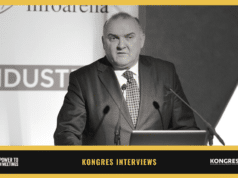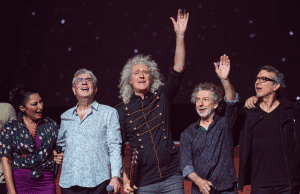In these challenging times, Kongres Magazine is trying its best to provide meeting planners with the most relevant and useful information regarding the spread of COVID-19. We also want to share opinions from key members of the meetings industry.
We asked key opinion makers from the meetings industry for their thoughts on the situation and how they are coping with COVID-19.
ANŽE ČOKL, General Manager of Bohinj ECO Hotel and Sunrose 7
PROCEEDING GRADUALLY AND CAUTIOUSLY
Q: How do you feel about the restrictions that European governments have implemented to contain the spread of COVID-19?
All the hotels are shut down by state decree therefore restrictions have completely crippled our hotel business. However, we do understand that pandemic needs to be contained as soon as possible so we can resume the business once the worst is over.
Q: What would you compare this situation to?
We have previously never experienced anything quite like this. Even the GFC in 2008 has not had such devastating effects. Yes, the business took a downturn, but it was not down 100% like it is now.
Q: Economic consequences for the meetings industry have already started to show, what do you expect government institutions to do?
It is impossible to say or be certain as laws that are being passed change by the day. What we would be hoping to arrange however is relief in terms of not having to pay the VAT (at least for domestic guests), relief in not paying the Tourist Tax for domestic guests etc. An initiative to boost local sales first and due to air travel restrictions (we believe will be the last to be lifted), help the local economy recover first.
Q: What is your opinion on virtual meetings, as an alternative to live events?
Virtual meetings could be a salvation in dire times like now. But long-term I think people will always want to travel both for business and leisure. It is in the human DNA to meet people in person, talk, touch and experience.
Q: What precautions/measures are you taking in your company?
We are convinced that international travel will be somewhat slow at the beginning (once the crisis is over) so we will try and focus more on the domestic businesses in general. As we do not know what to expect in terms of when the lock-down ends, we have not drawn final conclusions as of yet of what to do. It is the uncertainty that is mostly unpleasant at the moment.
Q: What are your expectations regarding the duration of the crisis and when will the situation go back to normal?
I would say in Slovenia things will start clearing up some time at the end of May or in June, hopefully giving thought to organisers to keep the autumn meetings and dates alive. Back to “normal”, if I take last year as normal, I would reckon 1-2 years, but very much depending on how long this lock-down lasts as this might actually disrupt what people think of travel in general and change habits and intents.
Q: Is marketing (digital marketing) in the duration of the pandemic sensible (and appropriate)?
I think the closer we are to “salvation” the more marketing will be important. As far as appropriate goes I think it comes down to what the marketing activities are about, who they target and of course what the message is.
Q: What will happen after we’ve beaten the virus? How will you (re)start your marketing activities?
We will take it gradually and cautiously because nobody actually knows how the market will react to the current situation. It might happen that after COVID-19 some time will have to pass before we are all back on track, certainly not jumping back in all at once.
SMALLER PLACES AND BOUTIQUE HOTELS COULD HAVE AN EDGE AFTER THIS CRISIS IS OVER
Q: What role will sustainable tourism play after we surpass the COVID-19 crisis?
Generally speaking, I think it will be businesses that made smart(er) decisions before the times of crisis and have greater guest/client satisfaction and thus guest trust, to recover faster. I would also dare to say smaller places and boutique hotels away from the hustle and bustle of the big cities could have a bit of an edge after this crisis is over or at least vanning out.
Q: In your opinion, in light of current events is it better for destinations and tourist service providers to move away from mass tourism and focus more on sustainable tourism and why/why not?
As previously mentioned, I am sure that mass tourism will take the biggest hit and will be last to recover. Restaurants, bars and day visits to domestic destinations will be the first to recover, followed by smaller properties with great guest satisfaction and good value for money. Destinations involving air travel and mass tourism will most probably be among the last and the “price wars” might be most fierce in this segment.
Travelling after COVID-19 also very much depends on the sentiment of people. Will it go to the good “I stayed stuck at home 3 months, I have holidays to spare I want to travel” OR will it be “Let’s be cautious, there is a danger of a recession, will I still have a job, let’s go around for a day or two”. At this moment I think realistically nobody actually knows what will happen.
Q: Are you in contact with colleagues from around the world? Have you talked about any potential solutions?
We are closely following the situation, talking and discussing options, but mostly we are all eager to know when we can realistically plan to open, and everything related to the (different) times “after COVID-19”.














